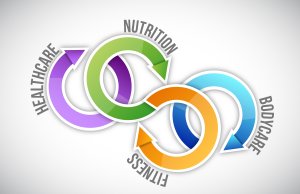Training for Professionals and Advanced Graduate Students: Tele-Consultation Groups (TCGs)
Tele-Consultation Groups (TCGs) on Sport Psychology and Performance Psychology- consist of eight 90-minute tele-conference calls, at approximately one month intervals. Combination of shared readings, case or programmatic consultation, practice development, and networking. Designed for psychologists, sport psychologists, other mental health professionals, and advanced graduate students. For more detailed information, Contact Dr. Shepphird.
- Dr. Shepphird also offers individual consultation and professional mentoring to mental health and sport psychology professionals. For more detailed information, please contact Dr. Shepphird directly.
FAQ’s about Training in Sport & Performance Psychology
Below are a number of questions that I get asked with increasing frequency about professional training in sport and performance psychology. I have linked some resources below each question that will hopefully serve as a good place to start in your search for relevant answers.
I haven’t chosen a career path yet. How can I become a sport psychologist or a sport psychology consultant?
You might check out the brochure, Graduate Training & Career Possibilities in Exercise & Sport Psychology which provides details about several options, each of which has its own training path.
As a general answer, there are a few routes you might take:
- Choose a graduate school/program that includes specialized training in sport psychology.
- In choosing the graduate program, even if in clinical or counseling psychology, see if there are options for coursework in the kinesiology department.
- If you pursue a clinical, counseling, or I/O psychology dregree, do your internship in a setting that includes sport psychology. A number of university counseling centers, for example, work specifically with athletes. The Directory of Graduate Programs in Applied Sport Psychology includes a listing of internship sites with sport psychology opportunities.
What are some links to important organizations I should know about?
- Division 47 (Division of Sport, Exercise & Performance Psychology) of APA. If you are a member of APA, you can join Division 47 as one of the divisions of interest to you; if you are not a member of APA, you can join Division 47 as an affiliate. Student membership is also welcome. Along with newsletter, journal, and presentations within the annual APA Convention, Division 47 ties in with the larger organization of psychologists through APA.
- Association for Applied Sport Psychology (AASP). This free-standing organization is composed of sport scientists as well as psychologists, with a strong graduate student contingent as well. Membership includes newsletter, journal, and an annual conference focused exclusively in this field.
An internet search of Sport Psychology Journals will show you that there are a great number of excellent resources out there! The Journals offered through APA’s Division 47 and AASP are excellent, as is The Sport Psychologist, and several others offered through Human Kinetics are excellent as well.
I do have some favorite beginning texts that I recommend, including
- Weinberg, R. S., & Gould, D. (2024). Foundations of sport and exercise psychology (8th ed.). Champaign, IL: Human Kinetics.
- Andersen, M. B. (Ed.) (2000). Doing sport psychology. Champaign, IL: Human Kinetics.
- Murphy, S. M. (Ed.). (1995) Sport psychology interventions. Champaign, IL: Human Kinetics.
- Van Raalte, J. L., & Brewer, B.W. (Eds.) (2013). Exploring sport and exercise psychology (3rd ed.). Washington, DC: American Psychological Association.
- Williams, J. M. (Ed.). (2021). Applied sport psychology: Personal growth to peak performance (8th ed.).
I am a mental health professional and want to expand my practice to call myself a sport psychologist. What do I do now?
First: can you legally call yourself a psychologist, that is, are you licensed as a psychologist in your jurisdiction? If the answer to that is yes, then, you should check on any legal considerations as to whether your jurisdictional Board allows one to specify the type of psychologist you are. The other very important consideration to take into account is that of competence: Even if you can legally use this modifier, are there ways that, if questioned, you could demonstrate competence in the field? The information provided in your professional organization’s code of ethics can be a helpful guide here and APA’s Division 47 has some good resources to address this question. See the links below. Another place to look is to review the criteria for Certified Consultant, AASP. Whether or not you intend to become a certified consultant of AASP, the criteria can offer a glimpse as to standards for best practice in the field.
Information about the APA Sport Psychology Proficiency
How a Psychologist Becomes and Sport Psychologist
Sport Psychology Knowledge and Skills Checklist
Some FAQ’s about graduate training in sport and exercise psychology
Should I seek supervision and consultation?
A Note to My Colleagues: I really do enjoy being helpful to students and other professionals, and I dedicate a set number of hours a week to pro-bono services. I am often asked consultation related questions about how one becomes involved in sport and performance psychology at the professional level. I am more than happy to answer quick questions, however, sometimes people have questions that need more conversation. Lengthier consultations would therefore occupy part of my business hours that might otherwise be spent dedicating time to my clients. Please understand that as such, I would be happy to provide you information about my consultation and/or mentoring fees for trainees and professionals, should you be interested. Thank you!

